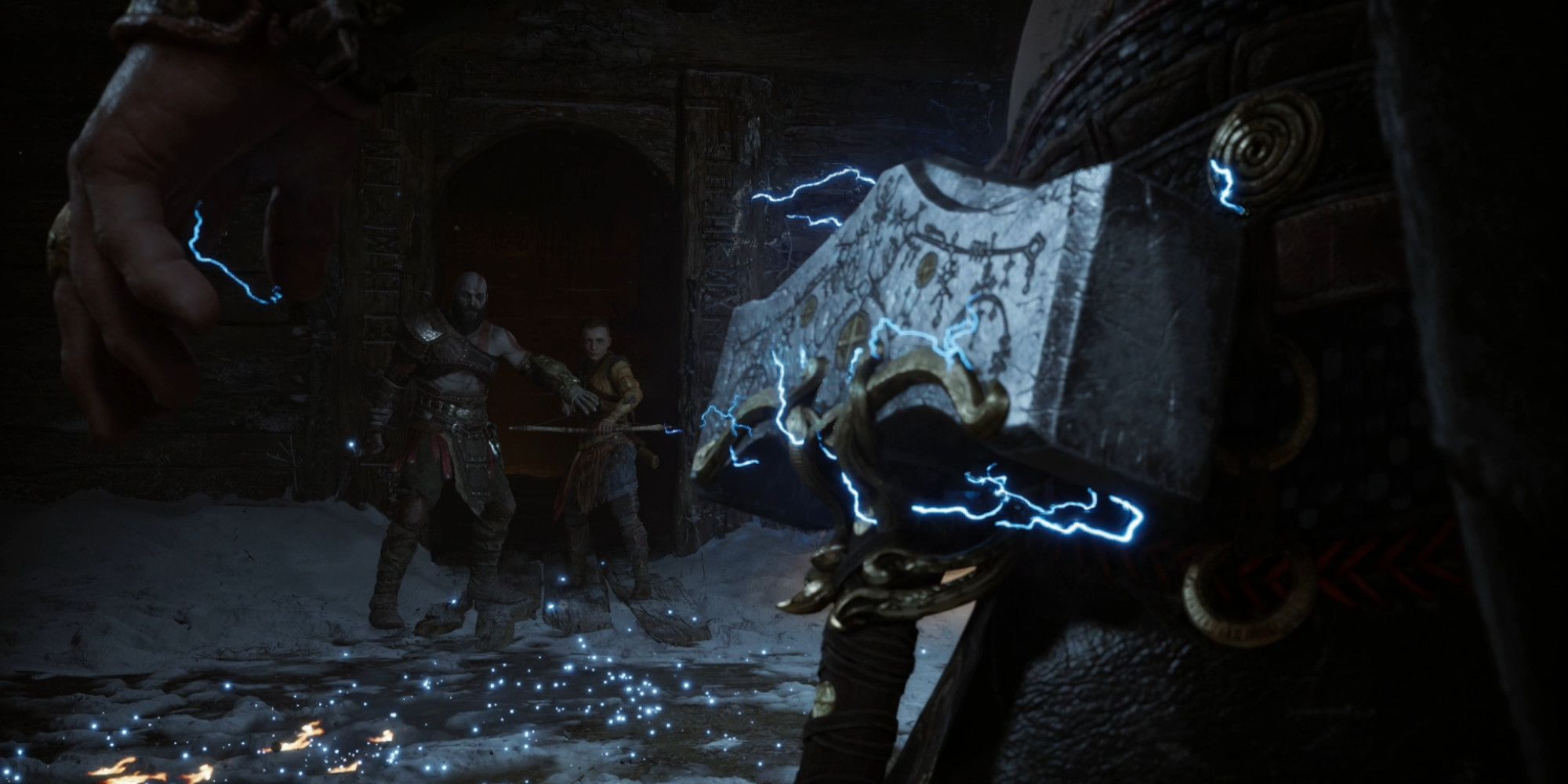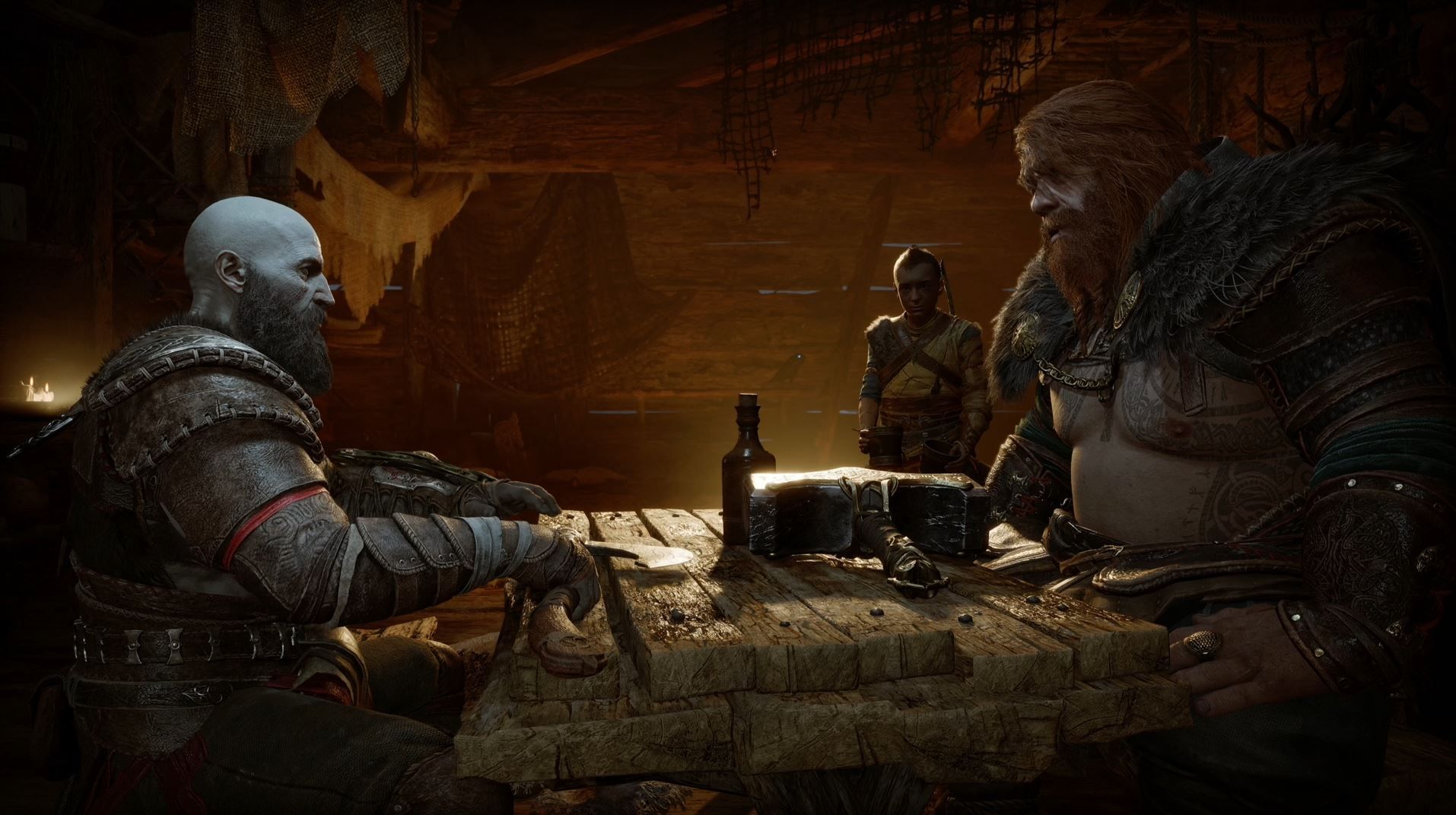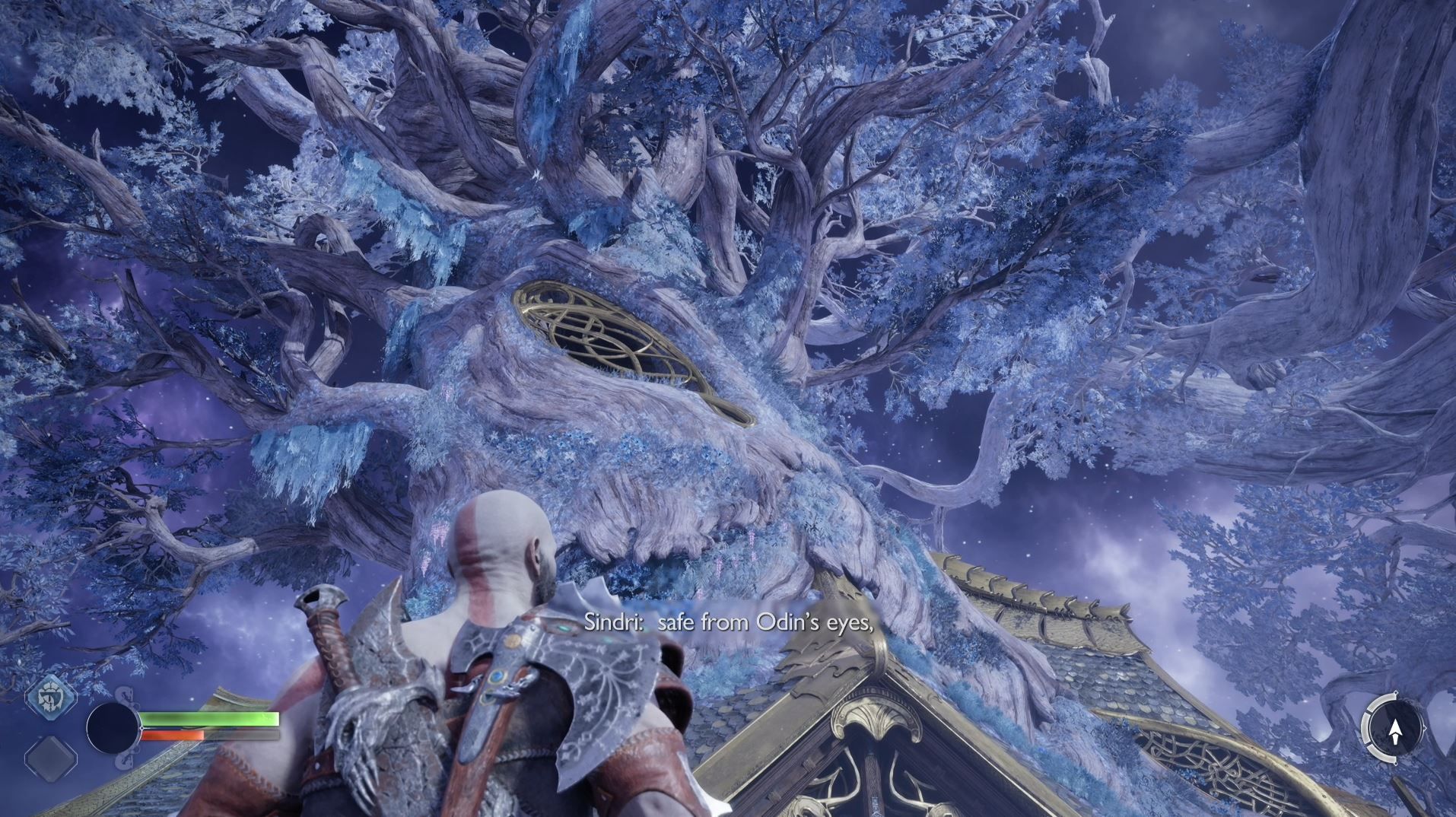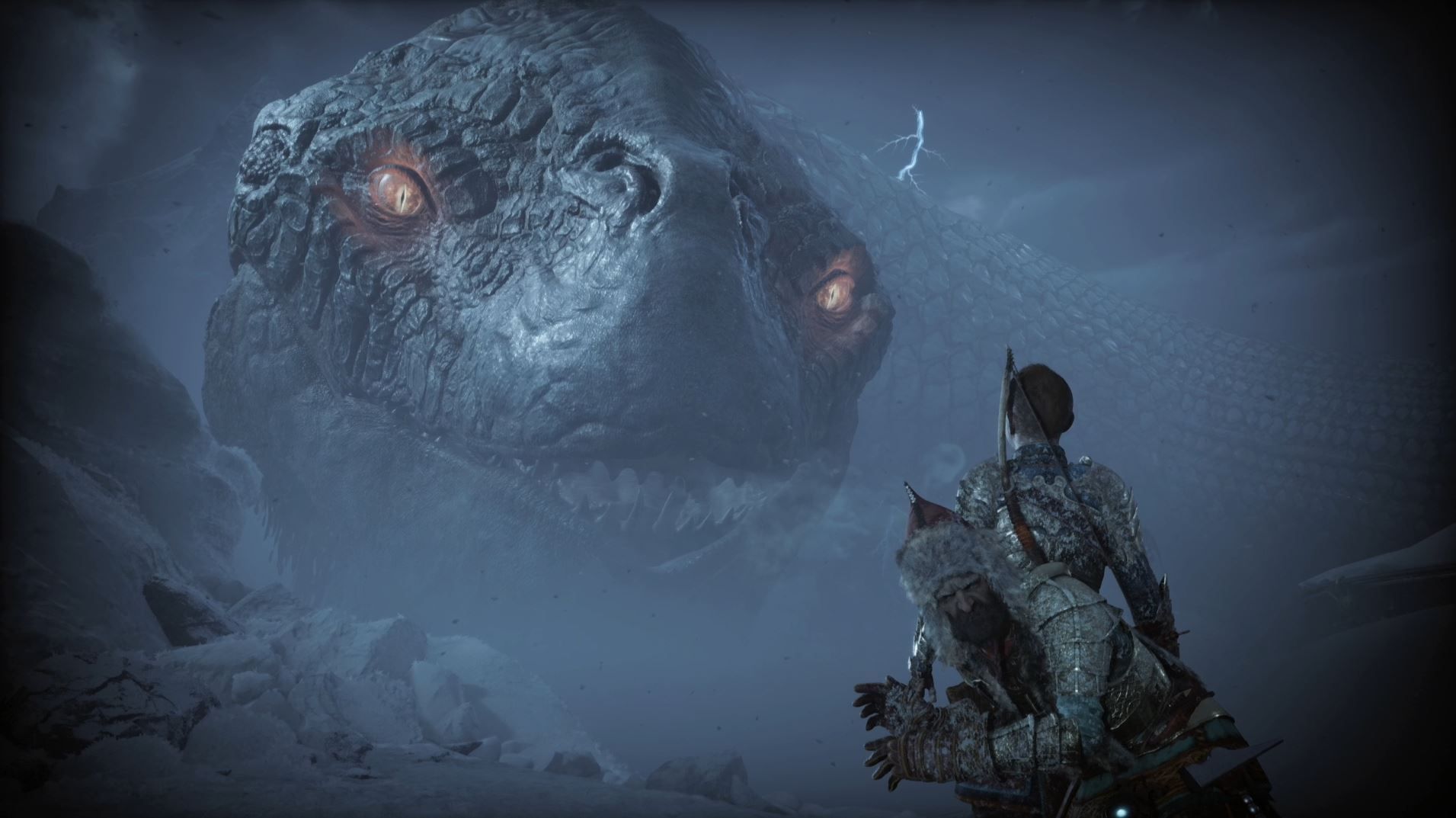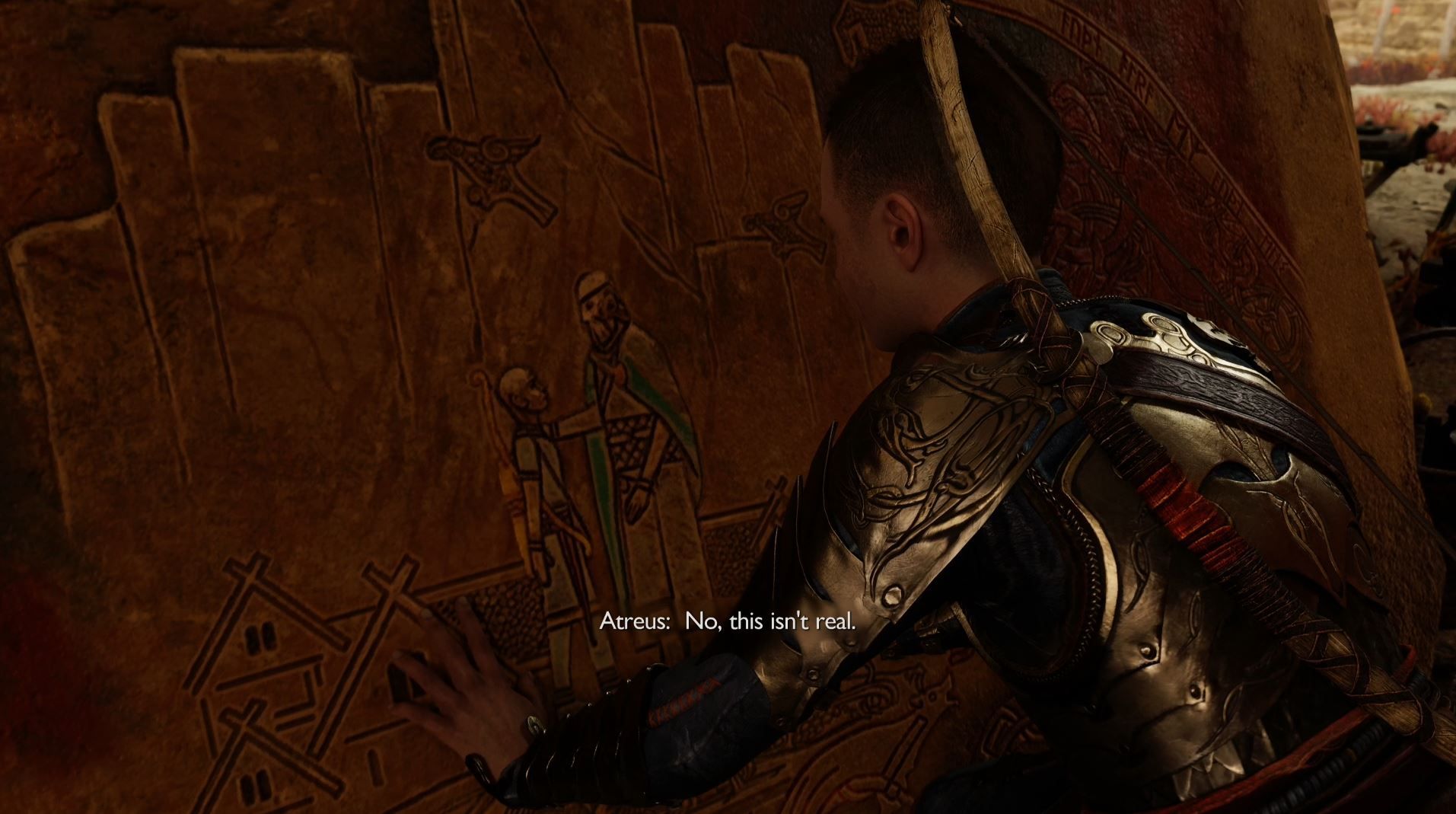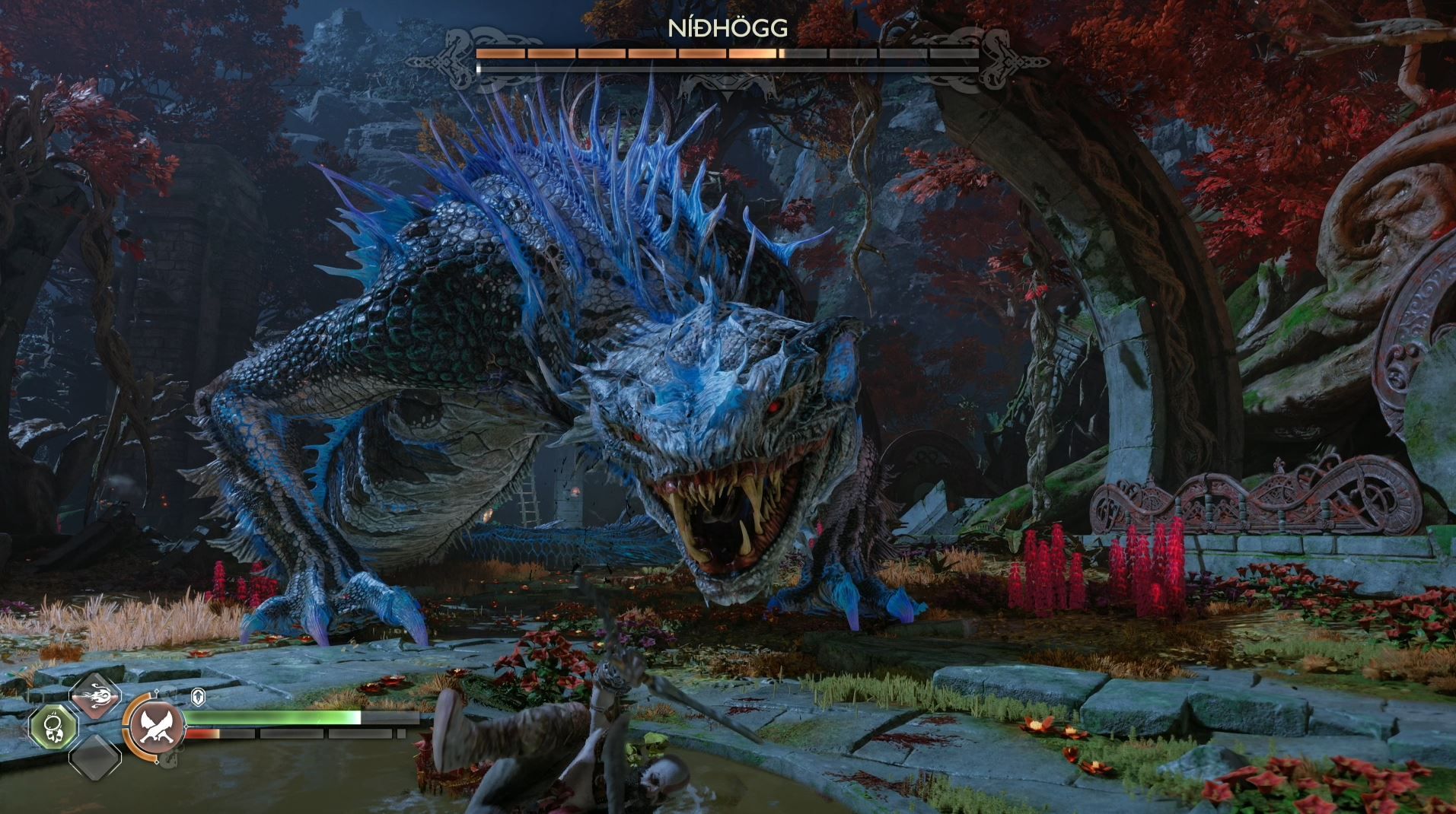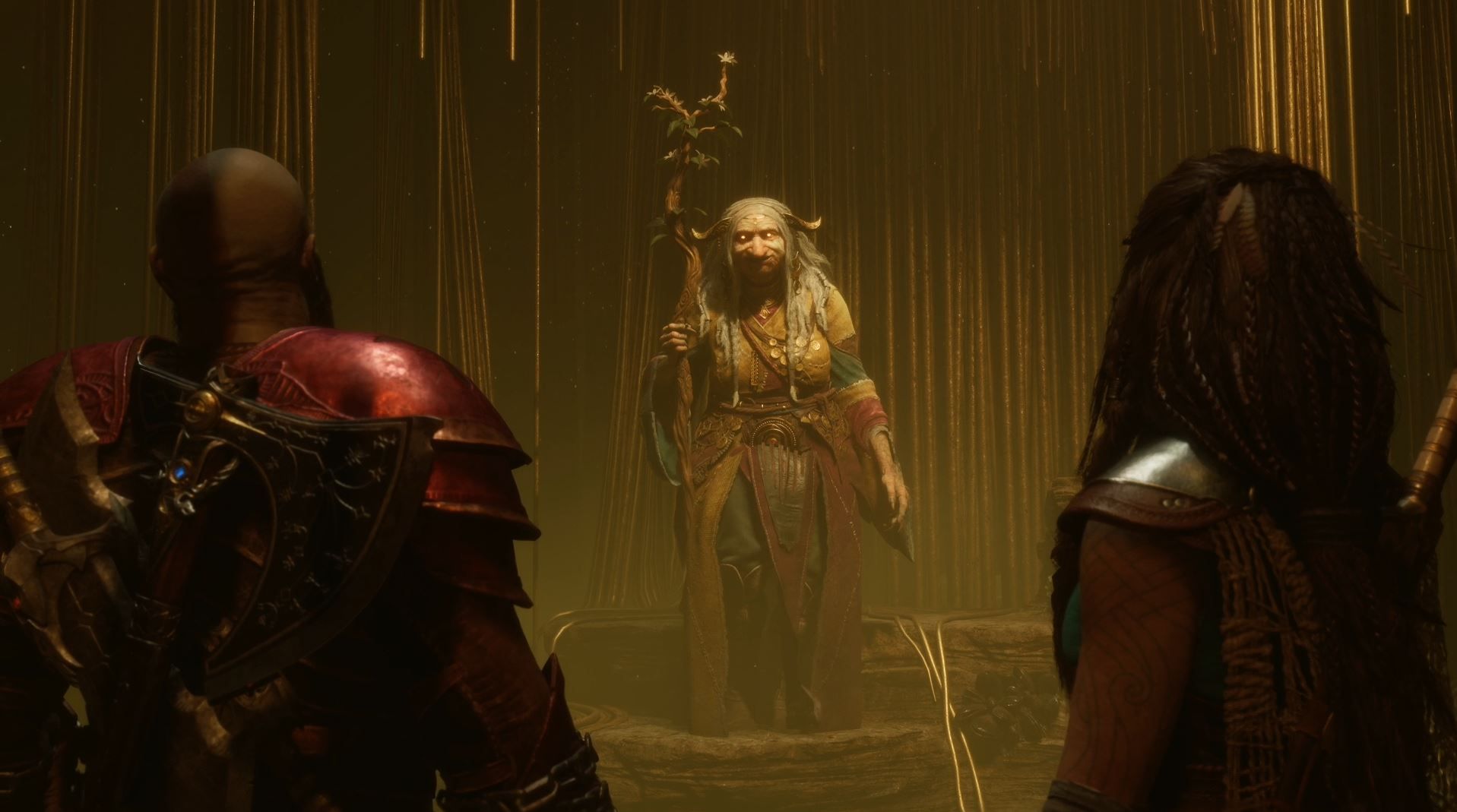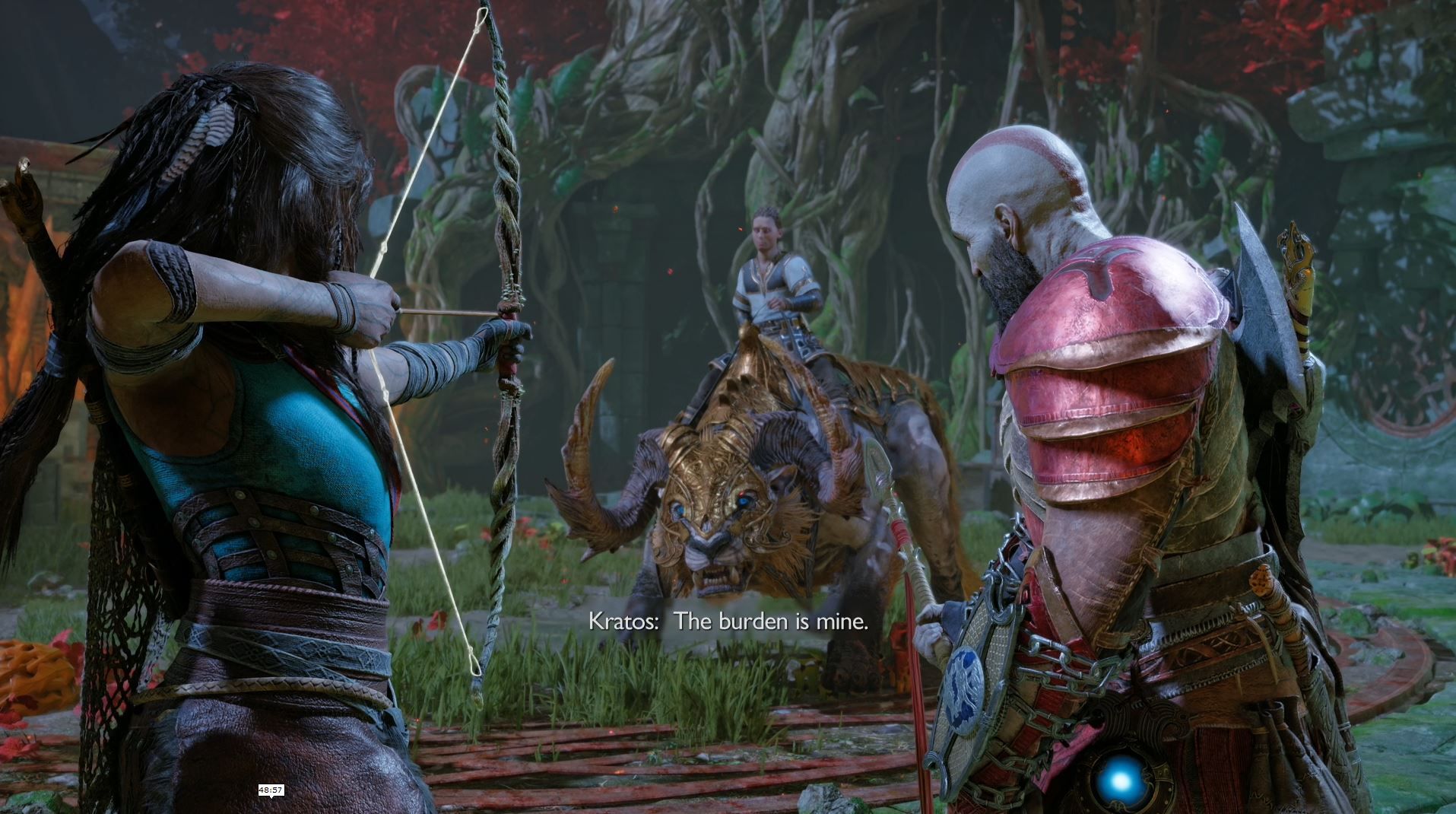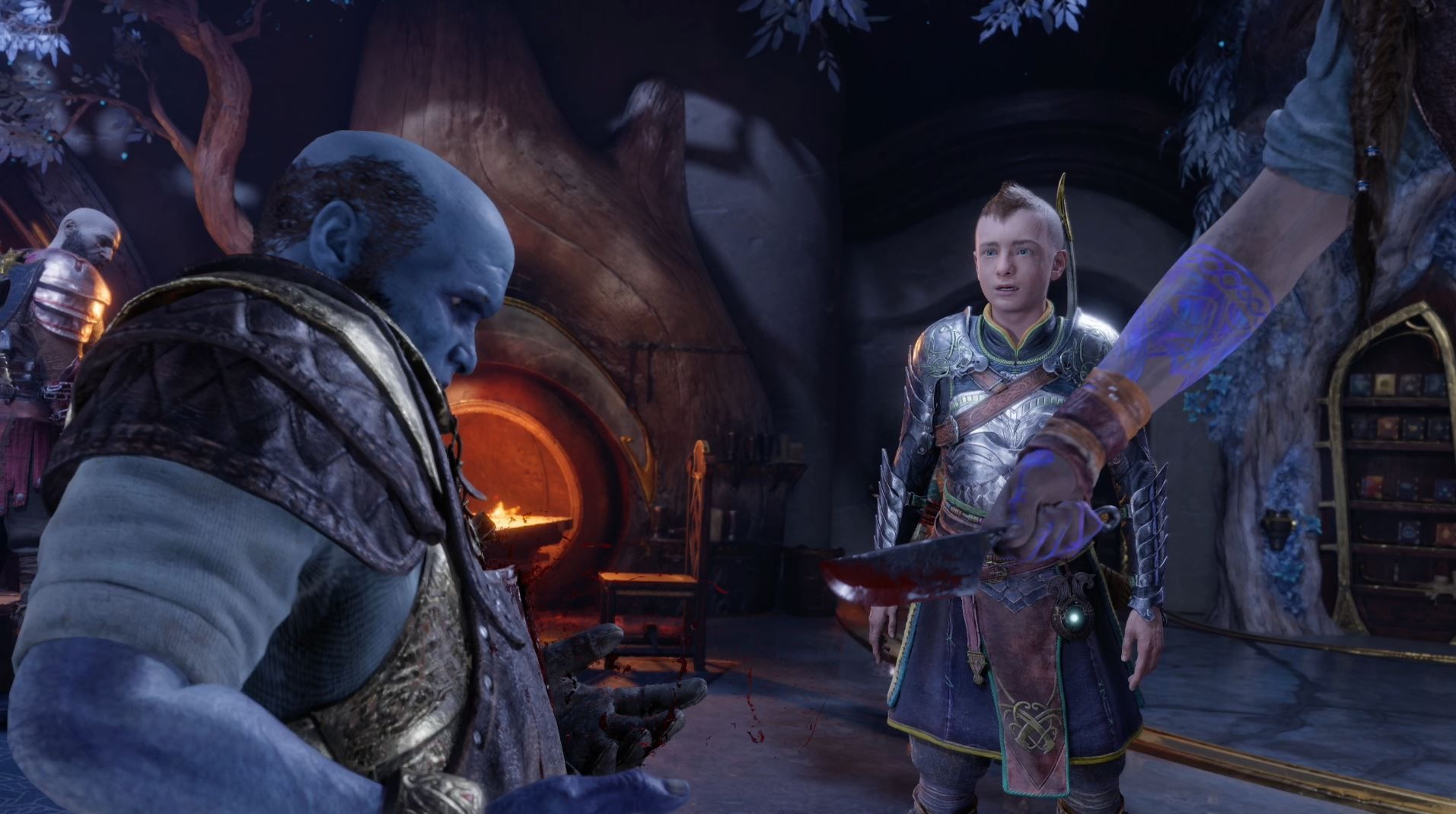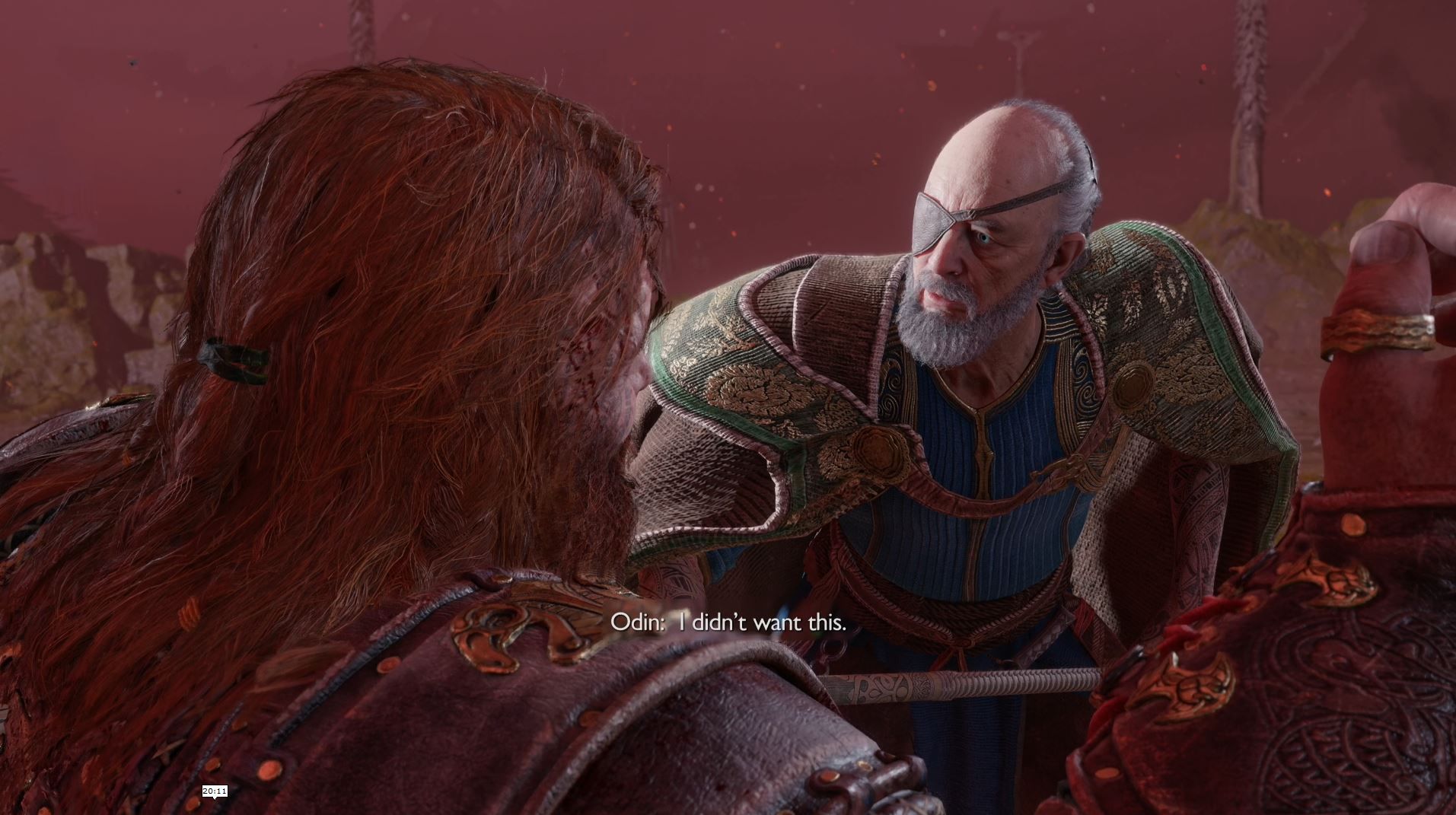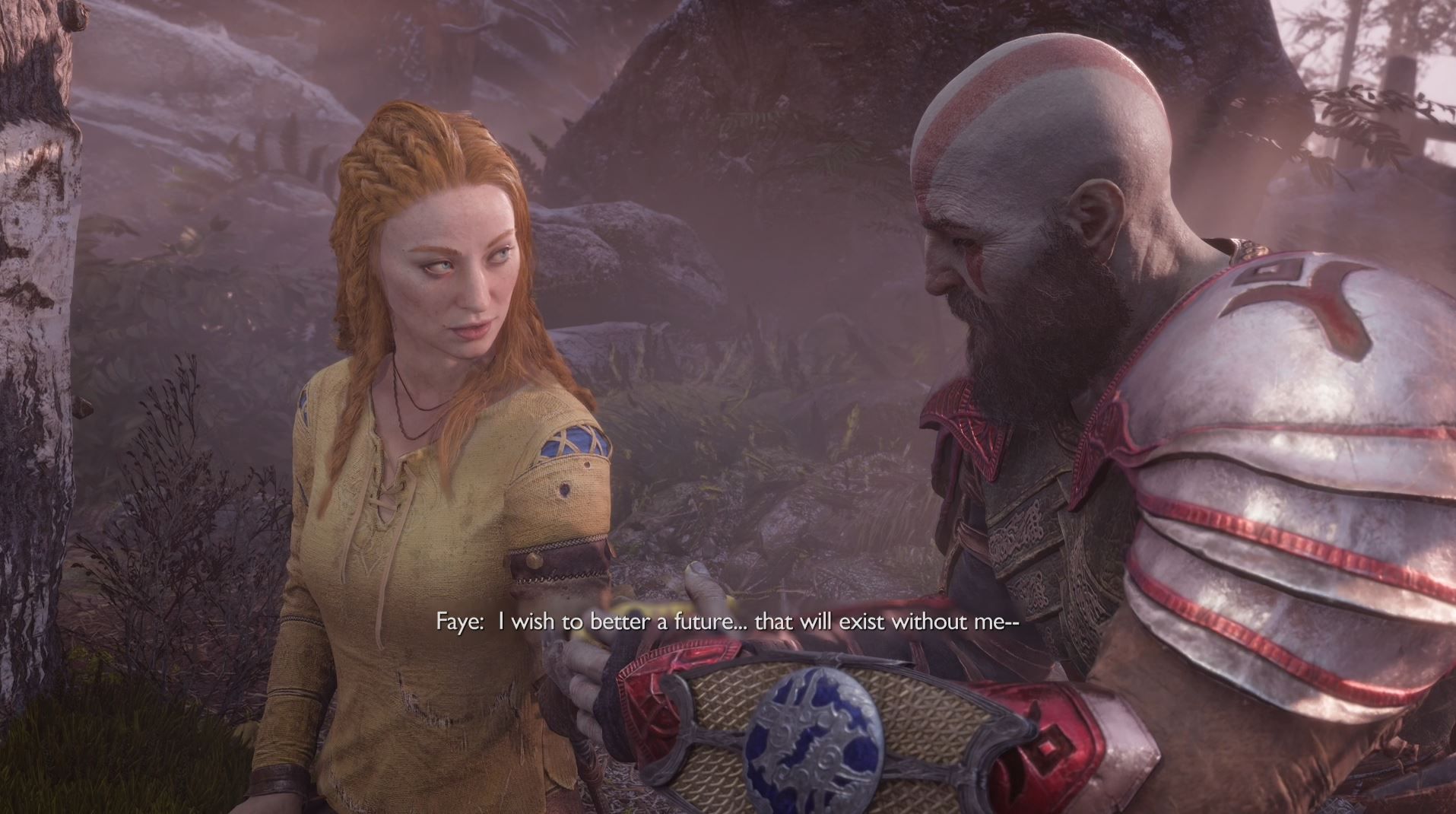It’s difficult to recall a game whose secrets were as fiercely guarded as God of War Ragnarok. The trailers and previews showed very little of both the story and the gameplay, and the embargoes placed on reviewers were strict. This sets an expectation for players that the game has secrets worth keeping - surprises that players will delight in experiencing themselves rather than learning about beforehand. Myself and other writers honored that expectation in our reviews, keeping things as spoiler-free as possible so that players would get the same opportunity that we had to play the game unspoiled. Is Ragnarok’s story worthy of all this build-up and secrecy? Spoiler alert: no, not really.
What follows is a breakdown of all the key moments, the twists and turns, who lives and who dies, and what happens at the end. This is your last chance to turn back if you still want to experience God of War Ragnarok unsullied, because I’m going to spoil everything - including why I don’t think this is the pinnacle of video game storytelling that you might have hoped it would be.
Several years have passed since the conclusion of 2018’s God of War, and the ceaseless winter brought on by the death of Baldur is in full effect. Both Kratos and Atreus know exactly what this Fimbulwinter means: Ragnarok, the final battle of the nine realms that will lead to the destruction of Asgard and the death of the gods, is coming.
Related: A Deep Dive Into God Of War Ragnarok's New Combat Mechanics
Unsurprisingly, Kratos wants nothing to do with it. Following Faye’s lead, he has created protection wards around their home to ward off Odin and his kin (as well as Freya, who hasn’t exactly gotten over that whole “murdering her son” thing) and intends to keep a low profile until this whole thing blows over. When Atreus asks him if he think Fimbulwinter will ever end, he hesistantly replies, “someday.” Kratos spends the next two-thirds of the story stubbornly trying to avoid the part he and Atreus are destined to play in Ragnarok in a feeble attempt to protect his son from becoming a vessel of war - from becoming him.
Atreus, by contrast, is throwing himself headlong into his destiny. He and Sindri have been secretly traveling Midgard seeking out messages left behind for him by the giants that reveal pieces of the Ragnarok prophecy in somewhat cryptic images. He’s always maturing into his giant abilities, including the power to transform into animals. After putting down his favorite wolf Fenrir, who became ill as a consequence of Fimbulwinter, Atreus is emotionally overwhelmed and turns into a bear, wreaks havoc on their neck of the forest, and breaks their protection spell.
Soon after, Odin and Thor show up to negotiate the terms of a truce. Ragnarok is the last thing Odin wants, for obvious reasons, and he offers to leave Kratos alone and keep Freya from bothering him anymore if Kratos will agree to stay out of his way. Though this serves Kratos’ interests too, he’s had a lifetime of dealing with duplicitous gods already, so he declines. Thor demands his pound of flesh from Kratos for killing his sons, and while the two brawl, Odin offers Atreus the thing he wants most: answers. He invites him to Asgard, but Atreus declines, for now.
Recognizing that things are very much now in motion, Atreus works up the courage to tell Kratos what he’s been up to. He shows him one of the prophecies that spells things out pretty clearly. It begins with Skoll and Hati, wolf-giants that Odin once captured because he believes their powers will help him control when Ragnarok starts. The giants freed them and hid them in Vanaheim, where they control the time of day by chasing the sun and moon through the sky. The moon is then stolen until a champion comes along and rescues it, causing an eclipse. The eclipse is ended by an arrow fired at the moon, which is chased by the wolves. The vision ends with a spear-wielding god, who Atreus believes is Tyr leading an army against Asgard.
Atreus also reveals that he found a marble in one of the shrines, where he also found images of Tyr imprisoned somewhere with black smoke and a bleeding earth. This leads them to Svartalfheim, the realm of the dwarves, but not before a visit to Sindri’s house in the realm-between-realms, which serves as the main base for their adventure.
Tyr is rescued from Svartalfheim, but he’s in no condition to lead an army against Odin. The Norse God of War has serious PTSD from years of imprisonment and has decided to be a pacifist. He refuses to fight, and he tells Atreus that if he expects him to be their general, he’s going to be disappointed. Feeling lost, Atreus sneaks out with Sindri and searches for the snake-giant Jormungandr, who says only “Ironwood” before disappearing again. Atreus then encounters Freya and tries to convince her to join the fight against Odin. He also tells her they found a new way to travel between realms, thanks to Brok and Sindri.
So far, so good. Many of the players are already on board, and the core conflict is well established. Kratos is the overbearing father that wants to shelter his son from the world, while Atreus is a young man trying to find his own identity - is he Atreus, father’s son, or is he Loki, champion of the giants? Kratos understands he needs to give him leeway to look for those answers, but quickly reaches his limit when Atreus refuses to be transparent and submissive. We also get to play as Atreus for the first time during his visit to Jormungandr (you play as Atreus for roughly one-third of the game) and his gameplay is fantastic. He’s much faster and more agile than Kratos and he’s better at blending melee and ranged attacks together. He can also transform into a wolf and bite the heads off of draugrs, which never gets old.
Odin is an invisible force looming over us throughout the first act. We don’t see him for a long time after he visits Kratos’ house, but we understand that he’s making moves, scheming, and doing everything he can to ensure Ragnarok doesn’t happen. We don’t know what his plans are, but we certainly know what he’s capable of. Every realm you visit has been subjugated and decimated by Odin’s influence. He is more than just a selfish god - he is a slaver, he has committed genocide, and he’s extracted wealth and resources far and wide. His power extends far beyond his godhood, and overcoming him and his armies will be no small feat.
The next stop on the journey is Alfheim, where Kratos, Atreus, and Tyr hope to find secrets at the Shrine of Groa. This is the first story beat where our heroes’ actions start to feel a bit arbitrary, but it certainly isn’t the last. Ragnarok takes us on a tour of all nine realms whether there’s a strong narrative justification for it or not, seemingly because the gameplay demands it. We do find another message from the giants here, though – this time, we witness Odin killing Groa for refusing to tell him about the vision of Ragnarok she saw.
We know that Odin stole her knowledge upon killing her, but this message from the giants reveals something no one, including Odin, knew before: when Ragnarok ends, Asgard will be destroyed, Odin will die, and the other realms will prosper. Again we see Tyr leading the armies of each realm against Asgard, and again Tyr refuses to take up arms. Kratos is still reluctant to admit he and Atreus have a part to play here, even though it’s obvious that Atreus is meant to be the champion that fights alongside Tyr in the prophecy.
Ironwood is repeated once again in the message, and Mimir explains it is supposedly the hidden refuge of the giants, who Odin tried to exterminate once he found out about Ragnarok. That night, Atreus falls asleep and wakes up in Ironwood, where he meets Angrboda, the last of the giants. She shows him a copy of the tryptic that depicts his fate - the same one they found in Jotunheim at the end of 2018’s God of War - only this time Atreus sees what Kratos already knows: Kratos will die and Atreus will join forces with Odin.
The fact that both Atreus and Kratos secretly know this prophecy drives most of the conflict through the second act. It’s a common plot convention called the miscommunication trope and it’s resolved, as you’d expect, by both parties eventually coming clean. A lot of what comes next could have been avoided if Kratos and Atreus weren’t keeping things from each other, but their eventual reconciliation is meant to be received as a moment of character growth and relationship building. Unfortunately, its reliance on a weak miscommunication trope gets in the way.
In Ironwood, Angrboda reveals that her destiny was to give Atreus a bag of marbles, just like the one he found in the shrine, that contains the souls of all the giants. Atreus has been searching all this time for his purpose, but now that he’s getting closer to finding it, he isn’t happy about it. He immediately tries to awaken one of the souls by putting it into a snake, but the snake darts off and Angrboda freaks out, so he gives the souls back and refuses to be responsible for them. This confuses Angrboda, who has waited all this time in Ironwood to fulfill her purpose and give Atreus the souls, but perhaps our fates aren’t as straightforward as they might seem. If you haven’t guessed, grappling with fate is probably the most important theme in Ragnarok’s story, for better or worse. Before leaving Ironwood, Atreus picks fruit for what feels like an eternity, then confront Angrboda’s soul-stealing grandmother, which feels entirely inconsequential.
Atreus returns home to Midgard, but two days have passed and Kratos is furious. To make matters worse, Atreus refuses to tell him where he’s been or what he discovered. Before they can sort anything out, Freya attacks them. After a short fight Kratos offers to travel with Freya to Vanaheim to break Odin’s curse that binds her to Midgard. Apparently, she is able to visit Vanaheim as long as she transforms into a bird at first, and as much as she wants vengeance for Baldur, she recognizes that she needs Kratos’ help, so off they go. While in Vanaheim, you learn more about the eternal war it wages with Asgard and you meet Freya’s brother, Freyr, who has supposedly inspired hundreds to fight and die for him with his charm and charisma, but to be honest, I don’t really see it.
Kratos and Freya kill the dragon Nidhogg to break the curse, then return to Sindri’s house, where Atreus has decided the only way to save Kratos is to go to Asgard and learn what Odin is up to. From this point on, Kratos and Atreus are separate for nearly the entire rest of the game. Kratos tries to stop him, but Atreus loses his temper and turns into a bear, then bursts through the realm gate outside of Sindri’s house and winds up somewhere in Midgard. In an extended sequence that serves almost no purpose, he wanders around waffling back and forth about whether or not to go to Asgard, visits Chaurli the giant turtle at Freya’s house, then eventually accepts Odin’s call.
In Asgard, Atreus discovers a township of Midgardians that were rescued by Odin at the start of Fimbulwinter, then climbs a giant wall that protects the Aesir from any threats. He’s confronted by Heimdall, who tries to kill him before Odin intervenes. After a short tour of Asgard, Odin reveals his plan to Atreus.
It all revolves around a McGuffin in the shape of a broken mask. Once repaired, the mask will allow Odin to peer into a tear in reality and discover the truth of all things. He thinks this forbidden knowledge will give him ultimate power, as well as a way to subvert Ragnarok, but he doesn’t know where the broken pieces are, and he can’t read the strange language written on it either. One of Atreus’ giant powers is to read any language, so he quickly sets off to find the missing pieces in the hopes that the forbidden knowledge will save Kratos too. He quickly retrieves the first piece from Muspelheim with the help of Thor, but not before running into Angrboda again, and finding another giant shrine depicting the fire giant Surtr becoming Ragnarok and destroying Asgard.
Meanwhile, Kratos and Freya seek out the Norms - Midgard’s version of the fates. They tell Kratos what he already knows, that Atreus is in Asgard, and that Kratos will die, but they also tell him that he will kill Heimdall to protect Atreus. This is a pivotal sequence that sets up the finale and reveals the nature of destiny to Kratos in a very Neo-meets-the-Oracle kind of way. They tell him there’s no such thing as fate, but that everyone’s actions are just so obvious, it’s easy to predict what will happen. Kratos doesn’t listen because he’s fixated on his task: killing Heimdall. “Again he misses the point,” the Norms say. “Focusing on the second act to the exclusion of the final. A common mistake in storycraft.” You have to be unbelievably confident in the strength of your ending to write a line like that.
Kratos and Freya return to Sindri’s house and tell him they need a weapon that can kill Heimdall. Sindri gives Kratos the Draupnir, a magic duplicating ring that was created as a gift for Odin. Kratos and Brok then travel to Svartalfheim to find a Lady of the Lake, a mermaid that can turn the ring into a spear. Brok also learns that he died and was resurrected by Sindri. Before they leave, Odin appears to Kratos and mocks him, telling him he doesn’t know anything about godhood, because no one has ever worshiped him.
Back in Asgard, Atreus deciphers a clue on the new mask pieces and determines the final piece is in Helheim. He and Thor’s daughter Thrud travel there, and quickly become close. They don’t find the broken mask piece, but they do find a big dog named Garm chained up. Atreus impulsively frees it, not realizing that Garm is chained because of its propensity to tear holes in the fabric of reality. Heimdall shows up after retrieving a moon-stealing bag for Odin and informs Atreus of his blunder before kicking his ass. Though Odin doesn’t seem too bothered by it, Atreus is afraid of the consequences, so he returns to Sindri’s house to find Kratos.
Together, Kratos and Atreus head to Helheim to subdue Garm. Having realized that the blade he used to put down Fenrir now holds the dog’s soul, he transfers it into Garm, making the demon dog docile. The dog is then sent to Kratos’ house, another piece of the Ragnarok prophecy seemingly inline. While in Helheim, Atreus and Kratos decide that they won’t be bound by prophecy and will instead create their own destiny. Even if they are doing things that prophecy dictates, they’ll only do it if it's necessary. The pair return to Sindri’s and Atreus explains Odin’s plan to everyone, but, since Atreus returned and Kratos no longer feels any urgency to kill Heimdall, they decide to travel back to Vanaheim with Freya to fight Odin’s forces there.
Upon reaching the Vanir camp, they learn that Heimdall has led an assault, kidnapped Freyr, and stolen the moon. As prophesied, Kratos kills Heimdall, taking his bifrost-summoning horn, then returns the moon to the sky, causing the eclipse. Atreus fires an arrow at it that Skoll and Hati chase, returning things to normal.
Back at Sindri’s, Tyr warns the heroes that Odin was only letting them live so long as no more Aesir blood was spilled, but now that Heimdall is dead, Odin will seek vengeance. Atreus decides that his only chance to finish the mask and learn the secrets of the universe is to go back to Asgard right now before Odin learns that Heimdall died. He leaves, but with Kratos’ blessing this time, and returns to Odin to tell him he mistranslated the mask before. It turns out the final piece is in Niflheim, but before Atreus can head there, he has to retrieve a drunken Thor from the bar in what has to be the most painfully unnecessary scene in the whole game. Thrud and Atreus give Thor an intervention, scolding him for drinking his pain away when his family needs him. It’s then followed by a bar fight before Atreus and Thor head to Niflheim and quickly retrieve the final piece of the mask. Thor’s wife Sif shows up and convinces Thor he should kill Atreus for killing his sons, but Atreus is able to escape back to the realm-between-realms with a magic orb Sindri gave him.
Back at Sindri’s once again, the group tries to come up with a plan to use the mask before Odin gets to them. Tyr reveals that he has known a back way into Asgard all along and that he’s finally ready to lead them to battle, but Brok immediately becomes suspicious of his intentions. When confronted, Tyr transforms, revealing he was Odin in disguise the entire time, and stabbing Brok to death. Odin tries to flee with the mask, but Kratos knocks it out of his hand with the Draupnir spear just as he teleports away.
Tyr’s true identity will be a divisive twist. On the one hand, you can look back and see some clues that point to Tyr’s motivations. He is stunned when they discover Odin is meant to die when exploring Groa’s shrine, and he warns them about Odin’s wrath when Kratos kills Heimdall. But on the other hand, you have to seriously suspend your disbelief to accept that Tyr was actually Odin the entire time. When this happened, I assumed he was just mimicking Tyr in this one scene, and that the Tyr we’d known throughout the game was tied up in Sindri’s closet. The fact that Odin was just hanging out, going on adventures with Kratos, and sleeping at Sindri’s house is hard to square. Shapeshifters is another plot device I’m not a huge fan of, and the way it was handled here did little to change my mind.
Now, the heroes have no choice but to prepare for war. All of the prophecies that depicted Tyr were actually depicting Kratos holding the Draupnir spear and Heimdall’s horn. As everyone spreads out across the realms to raise an army of Odin-haters, Kratos and Atreus go to Muspelheim and find Surtr the fire giant. With suspiciously little effort, they are able to convince Surtr to transform into Ragnarok and join them in Asgard.
The next day, Kratos uses Heimdall’s horn to bring them to Asgard, where the armies of Helheim, Vanaheim, and Alfheim have somehow already started the siege. Angrboda is also there, and she brought both Fenrir and the snake from Ironwood, who has rapidly grown into Jormungandr. The monstrous Ragnarok soon arrives, but Kratos and Atreus soon discover that Odin has placed the Midgardian humans in the way to try to slow them down. Kratos recognizes that tearing through them to get to Odin will hurt Atreus, whose heart is still open, unlike his, and decides to stop the assault. He commands Freya and Freyr to stall Ragnarok while he and Atreus sneak in and deal with Odin, then he has Sindri blast a hole in the wall so they can get in. Kratos is almost immediately ambushed by Thor, and the two begin a multiphase fight to the death.
When Thor is defeated, Kratos decides to show him mercy and let him live. This is meant to be the one decision that changes his fate. Had he killed Thor and continued to be the vengeful god he’s always been, we’re meant to believe the prophecies would have been correct and he would have died too. But by letting Thor live and embracing a different path for himself, this part of the prophecy - and only this part of the prophecy - is rendered false. Thor also agrees to stop fighting, but when Odin arrives and finds out his son has disobeyed him, he kills him.
Finally, they fight Odin. It’s a multi-phase fight that begins in front of the Great Lodge and ends in the caverns below where Odin has studied the tear in reality for all these years. He begs Atreus to wear the mask and peer within, but Atreus now understands that he isn’t bound by fate. He breaks the mask and uses one of the Jottun orbs to trap Odin inside. Freya is given the opportunity to destroy it, but when she hesitates, Sindri appears and smash the orb in retribution for Brok.
In the end, Angrboda takes Kratos and Atreus to a final shrine that depicts Faye destroying the first shrine they found in Jotunheim in order to keep them from discovering their fate, which obviously didn’t work because they found it anyway. Atreus tells Kratos he needs to go off on his own and find the rest of the giant’s soul marbles, and Kratos agrees to let him go. The back side of Faye’s shrine turns out to be Kratos’ shrine, and we discover that, through repairing the realms, he will one day be worshiped like a real god.
There is a lot of space between the start of Ragnarok and the end of it, and a lot of it struggles to keep the plot moving forward. When it’s aiming to explore the dynamics between a regretful father and a young man finding his place in the world, Ragnarok shines as brightly as 2018’s God of War. But it often stumbles when it comes to the finer details. Odin doesn’t end up being the evil mastermind he’s painted to be, especially when he can’t stop himself from antagonizing the Vanir by putting Heimdall in Kratos’ path and fulfilling several details of the prophecy he so desperately wants to avoid.
Ultimately, fate just isn’t a particularly compelling or relatable theme to center a story around, and Kratos’ journey to forsake vengeance and embrace mercy when his entire agenda through the entire game was always to only kill when he has to doesn’t make much sense. If you want to continue Ragnarok after the story ends and travel throughout the realms to clean up the messes you missed, Kratos is going to have to kill a lot more people regardless - light elves, dark elves, einherjar - and sometimes as an act of vengeance.
The night before the final battle, Kratos dreams a memory of Faye. In it, she begs Kratos to open up his heart to the world. This gets a pay off as soon as they reach Asgard and see the civilians in the line of fire, as Kratos realizes during the battle that Atreus’ strength is his open heart. And while Ragnarok does this frequently - setting up moments with a schmaltzy line that becomes a lesson for our heroes to internalize almost immediately - this one feels especially hacked in, as it's essentially the thesis for Kratos’ entire character arc in Ragnarok. It is these half-baked themes that make me wonder if a trilogy would have served this story better, but given how much of Ragnarok felt like filler, I’m somewhat glad that Kratos’ journey has come to an end.

